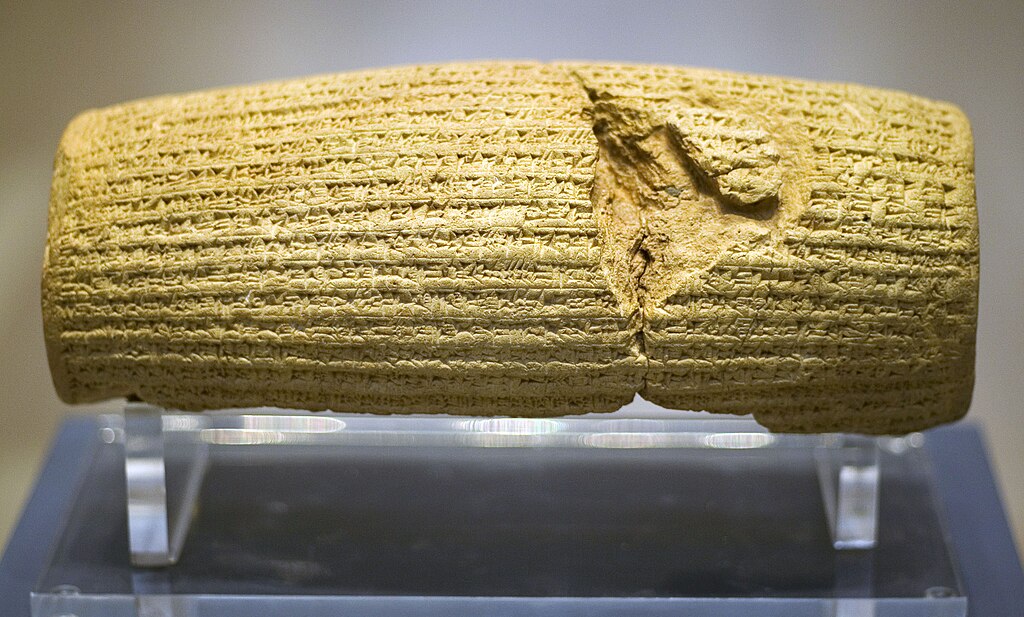THE ORIGIN OF HUMAN RIGHTS
━━━━ The Cyrus Cylinder ━━━━

In 539 B.C., the armies of Cyrus the Great, the first king of ancient Persia, conquered the city of Babylon.
But it was
his next actions that marked a major advance for Man.
He freed the slaves, declared that all people had the right to choose their own religion, and established
racial
equality.
These and other decrees were recorded on a baked-clay cylinder in the Akkadian language with
cuneiform
script.
Known today as the Cyrus Cylinder, this ancient record has now been recognized as the world's first charter
of human
rights. It is translated into all six official languages of the United Nations and its provisions parallel
the first
four Articles of the Universal Declaration of Human Rights.
- More Info:
- wikipedia
- National Geographic
Coded By Afagh Sotoodeh